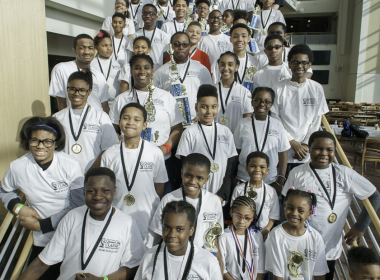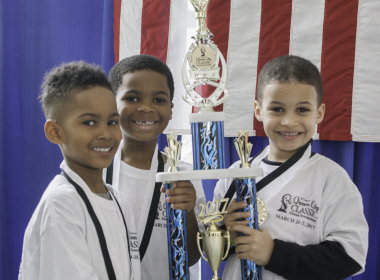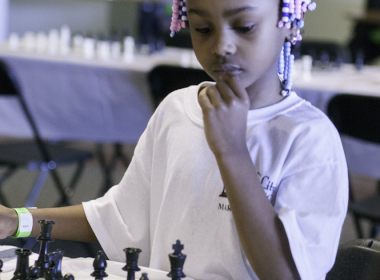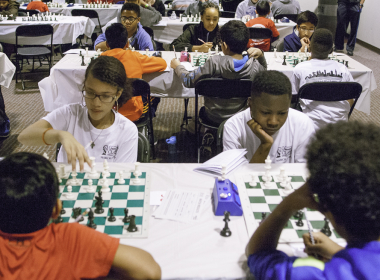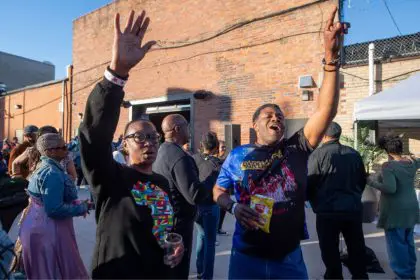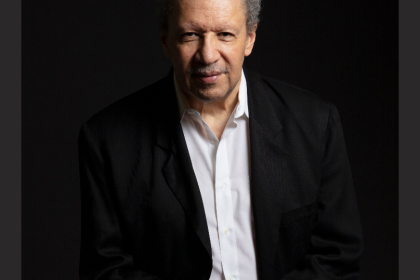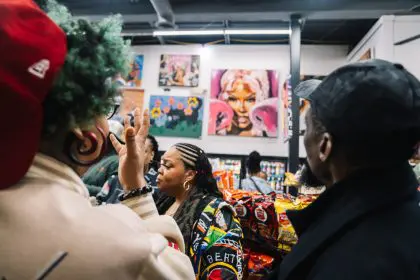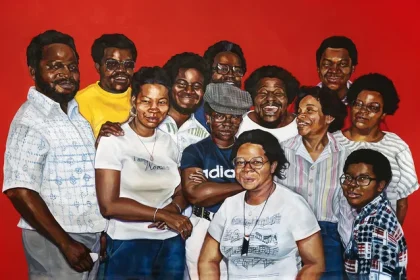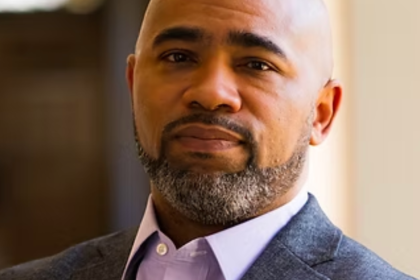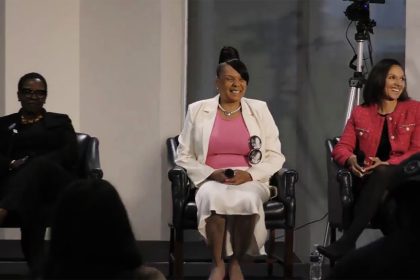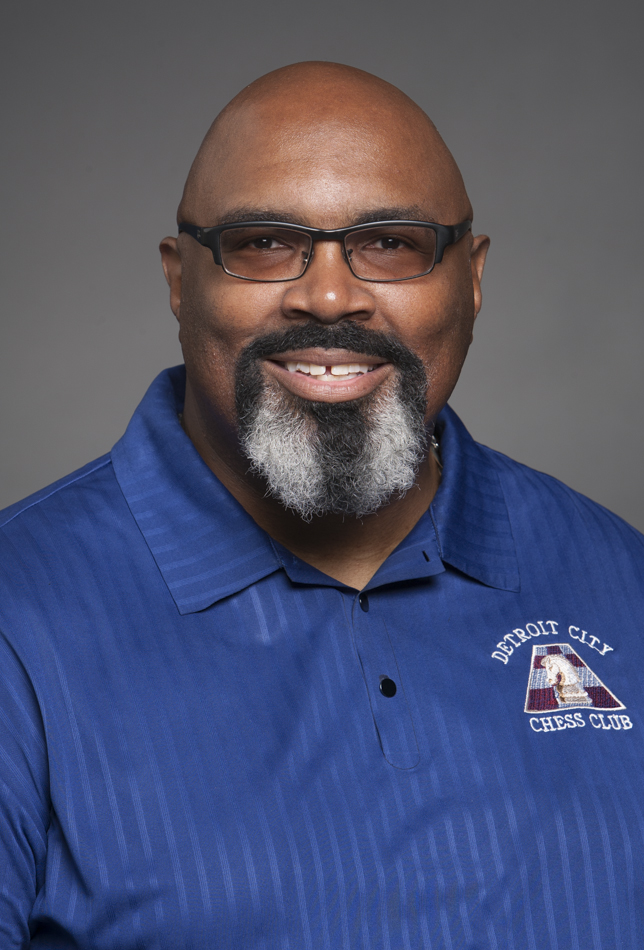
The University Prep Science and Math Middle School and Detroit City Chess are nurturing some of the youngest chess players in the world.
Coach Kevin Fites originally started a small chess group with his math students that developed legs and took off faster than his imagination could ever fathom. His dedication to students and belief in their greatness fostered a new environment and love for a game that has changed their lives. Not only have they learned to master the game of chess; they’ve become a part of a family that teaches leadership and encourages comradery.
Rolling out had a moment to speak with Coach Kevin Fites about how he checkmated an entire generation into making something positive and instrumental “cool.”
How did you get your start with the chess teams?
I have a citywide club, which is Detroit City Chess Club, and I have two teams I actually coach at University Prep Science and Math Middle School and Sampson Weber Academy. It started about fifteen years ago when I was a math teacher. And there was no rhyme or reason. I had five math classes asked the kids who played chess and only two students raised their hands. I suspected there might have been more but it was a tough school, so I think a lot of the kids didn’t want to admit that they knew how. We started with those two kids and they got teased a lot for playing. They were called every name that you can think of. Eventually, we got a few more students, and two became ten, and ten became twenty, twenty became thirty, thirty became fifty-two. I say fifty-two because I couldn’t fit anyone else in my classroom. We had kids at my desk, on my computer table, and on the floor. It was probably a fire hazard but we were just trying to make it work.
Did chess change the school’s culture?
I knew we had changed the culture of the school when kids were coming up to me that I did not know saying, “Hey Coach Fites I wanna join the chess team.” It always broke my heart that I had to turn a lot of them down because I just didn’t have the space anymore. That team eventually started competing and won our first nationals that we’d ever competed at. That school was called Detroit Duffield Elementary and Middle and it spawned The Detroit City Chess Club that’s been in existence for about 15 years. At that time one of my either grade girls came up to me and asked “Mr. Fite, what if our high school doesn’t have chess? What are we going to do?” She asked in all seriousness. I didn’t know what to tell her, so I did what most politicians would do; I said, “You know, I really don’t know but I’ll get back to you.” That night I sent an email out to all of my friends asking them if they knew a place where we could play chess and one of my friends replied and said, “What about the DIA?” I said, “The Detroit Institute of Arts? The Museum? They’re not going to let us play there. It’s a world-class museum.” She said, “Let’s try.” She set up a meeting and a week after that meeting we started playing there and it expanded. We started off with a classroom full of people and now we’re well over five hundred to a thousand.
So you’ve built a great working relationship with Detroit Institute of Arts over the years.
We really have. They were already giving us the space for free. Eventually, they started to give us money to help sponsor Simultaneous Exhibitions, where we bring a Grandmaster in to play with all of our kids at the same time. In 2015 we actually brought the number two player in the world at that time to play. He said, “I’ll be able to knock these kids out in 2 hours.” I told him “I don’t know, I think about 4 hours.” And it ended up being 4 hours and 15 minutes, plus I had one kid beat him and another to draw him. We got mad respect nationally because he talked about us a lot in different chess media outlets.
Children usually dictate what’s cool and they’re very selective with the things that receive that label. How were you able to turn chess into something they consider cool?
Honestly, I think it was real simple: They win. The kids win trophies and when you go to the school with trophies everywhere, that’s how it’s bred. Plus word of mouth, so now the chess kids are the cool ones. At least at the schools I teach at now. They go on radio and television a lot. They’ve been on ABC, NBC, and everything that you can think of. They were even mentioned in the NY Times before. They’ve had a lot of success. I think kids want to be a part of the success, so it’s been an easy sale for me.
What’s the criteria when picking students for the team?
I don’t have criteria other than they simply have to give me their best. We take them as they are because I never want to turn a kid down. Some say you should have a certain GPA but what about children that are diamonds in the rough? I’ve had a lot of those.
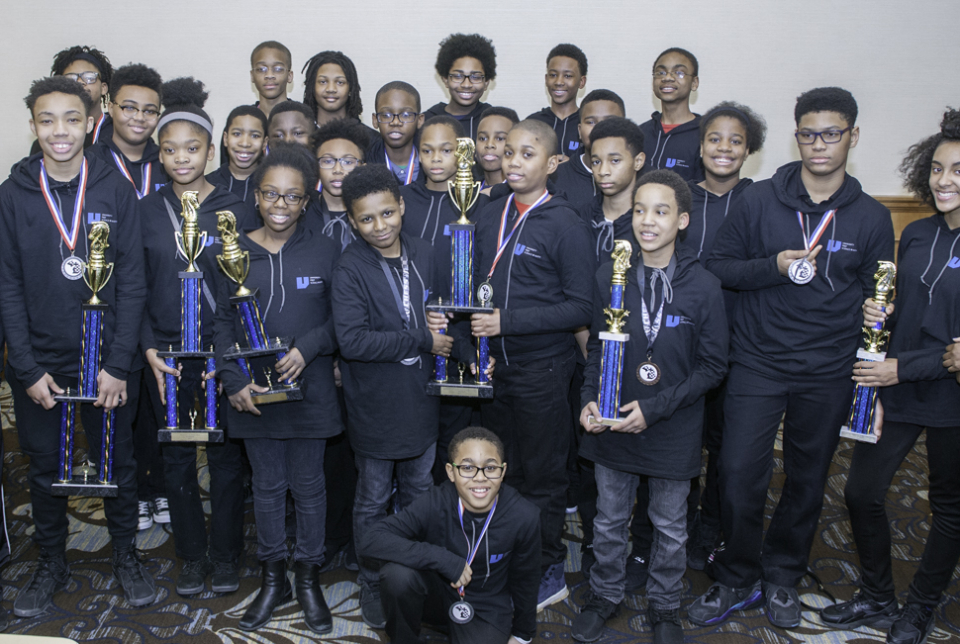
Tell us about the national championship in May?
It’s the SuperNationals actually. What makes it super is every four years elementary, junior high and high school student’s play under the same roof, which is usually well over 5,000 students competing for various titles in different sections. We’re taking thirty-eight students from my school and we’ll be competing in 7 sections while we’re there. That’ll be May 12-14 in Nashville, Tennessee.
How do you pay for the travel and expenses?
Parents are responsible but we have small fundraisers throughout the year, and the school has donated a lot this year. The school really did a fantastic job! They’ve done more this year than all the schools I’ve ever coached at put together. It needs to be said and they need to be thanked because most schools don’t really do much.
When you started this 15 years ago, did you ever imagine it would get this big?
Not in a million years. I used to coach high school football and I was a former football player. My focus has always been sports oriented. Although I played chess since I was eight-years- old, I’ve never competed; I only played the game. I never would have thought that one day I would be responsible for taking hundreds of kids to tournaments throughout the country and they perform well. I’ve had some great people help me over the years. I’ve had great coaches and even principals to assist us. The coaches helped elevate not only the kid’s game, but my game as well. One was very gentle and I necessarily wasn’t gentle. I was yelling at them like a football coach and I soon learned that tactic didn’t work with kids when it deals with their mental state. So I learned a lot from different people, bottled it up, and let it come through me. It’s really not just me, it’s everyone else.
I really couldn’t have done this without UAW-Ford. They have been our long-time sponsors since the second year and they still sponsor us today. I can’t say enough about them. We’ve won eleven nationals and over twenty-five titles. If it wasn’t for their support the kids would not have had this opportunity.
Looking back in retrospect, and seeing where we you are now, what has been the greatest reward from all of this?
The most rewarding is former students coming to the DIA to tell me they’ve graduated from college. Or getting phone calls or Facebook messages saying they’re in town from college and want to see if we’re still playing at the DIA because they want to come help out. I get choked up when they come back and tell me some of the stories, especially my student that asked about what would happen after she went to high school. She’s a college graduate, Captain in the Military, and married with a child. To know I had a part of that journey is rewarding. I really credit her for starting the Detroit City Chess Club. In all honesty, I did not have the vision for it until she raised that question.
Do you think the world was ready for these smart, intelligent, urban, minority students?
It was rough in the beginning. I think over the years Detroit chess kids have garnered respect. But in the beginning, they were called in n-word at a couple of tournaments. One kid walked up to our kids and said, “Black people can’t play chess.” They’ve had to deal with kids not shaking their hands after the games, but that was in the earlier years. Since then we haven’t experienced that much at all because they have earned their respect. They expect Detroit chess players to be on their A-game.
There is an assumption that Black students have low IQs and they’re not as intelligent. Do you think seeing them play chess has helped break down stereotypes and barriers?
What’s interesting is I have taught at private schools, I’ve even taught at some of the most difficult schools and they were all champions. I say that to say, it goes to show it doesn’t matter where you come from, if you give a kid some time they will perform for you. I’ve said a few times on radio and television that I’m not a great chess player. I give them time and I make them believe in themselves. I try my best to motivate them. So yes, my kids have knocked down a lot of barriers.
Where do you want to see this go in the future?
I’d like to see a chess center in the center. A safe haven. When they’re in the DIA, it’s safe. They feel calm and relaxed and can be themselves. The former Chief of Police here Walter Shoulders, whose grandson played chess for us years ago, was being interviewed by AP and said “We know what our kids are doing on Friday nights. They’re trying to out think people and study.” To have that many kids on a Friday night…they can be doing anything but they’re playing chess. And can’t wait to get there! It’s because it’s more than just chess, it’s comradery, it’s spending time with each other, it’s a social outlet. They feel like they’re a part of a team. This is why I want a chess center. I truly think it will help, especially in a city like Detroit.
Visit the Young Detroit Thinkers Facebook page to show support. Also, head over to www.detriotchess.com to support monetarily.
See pictures below.

